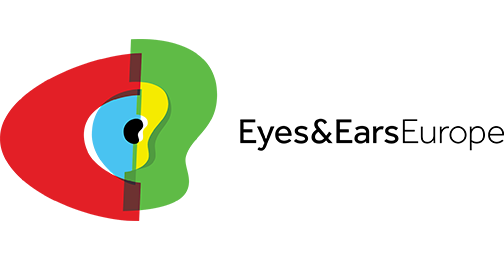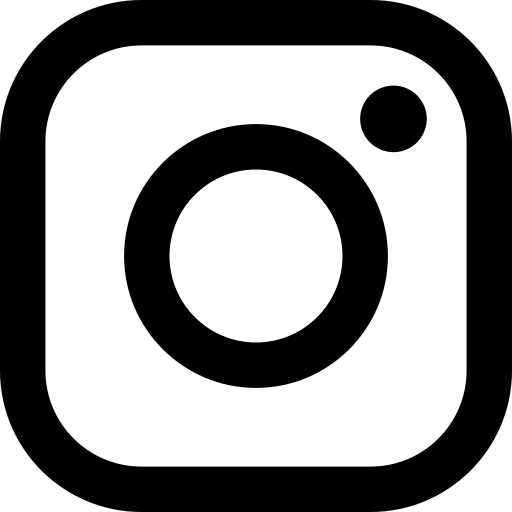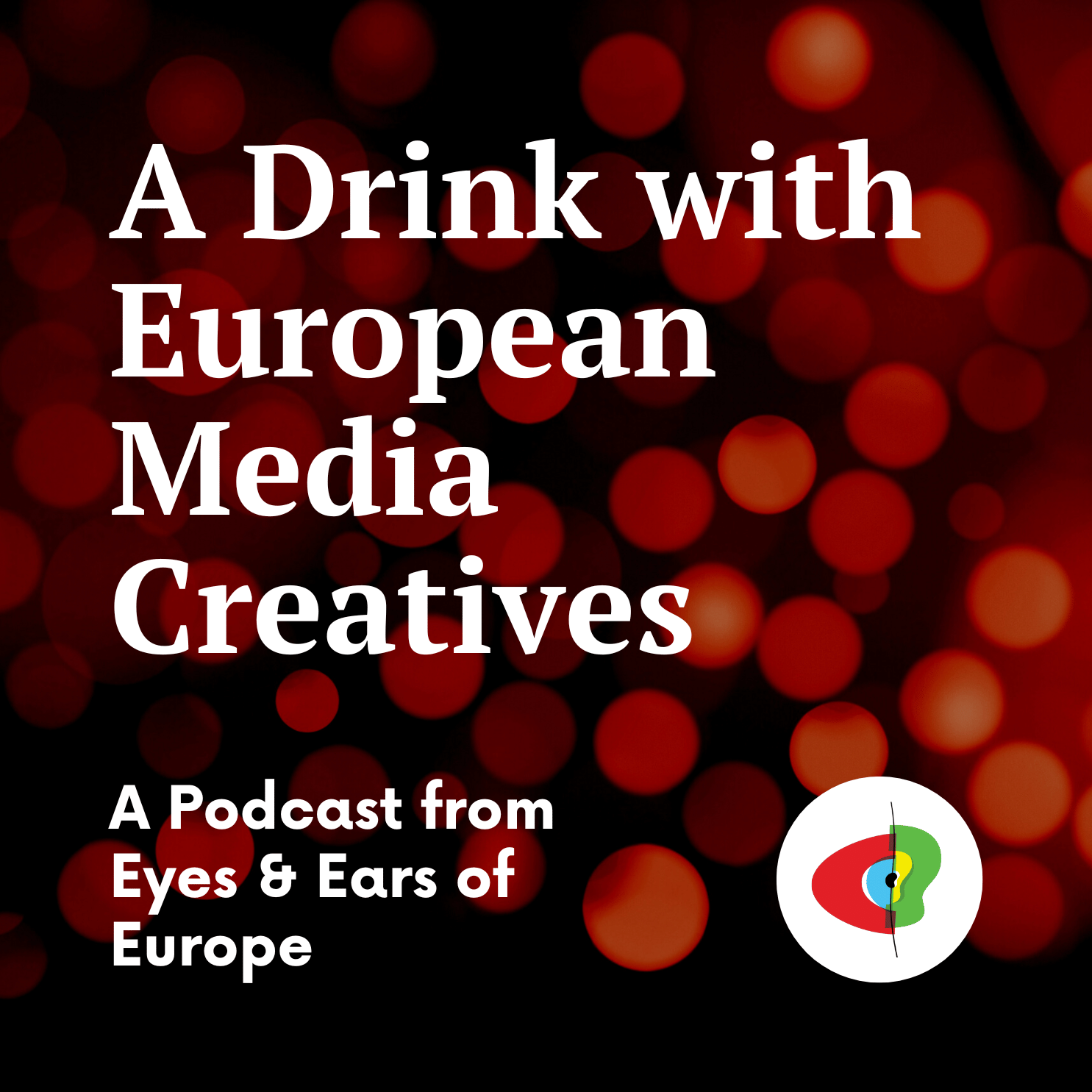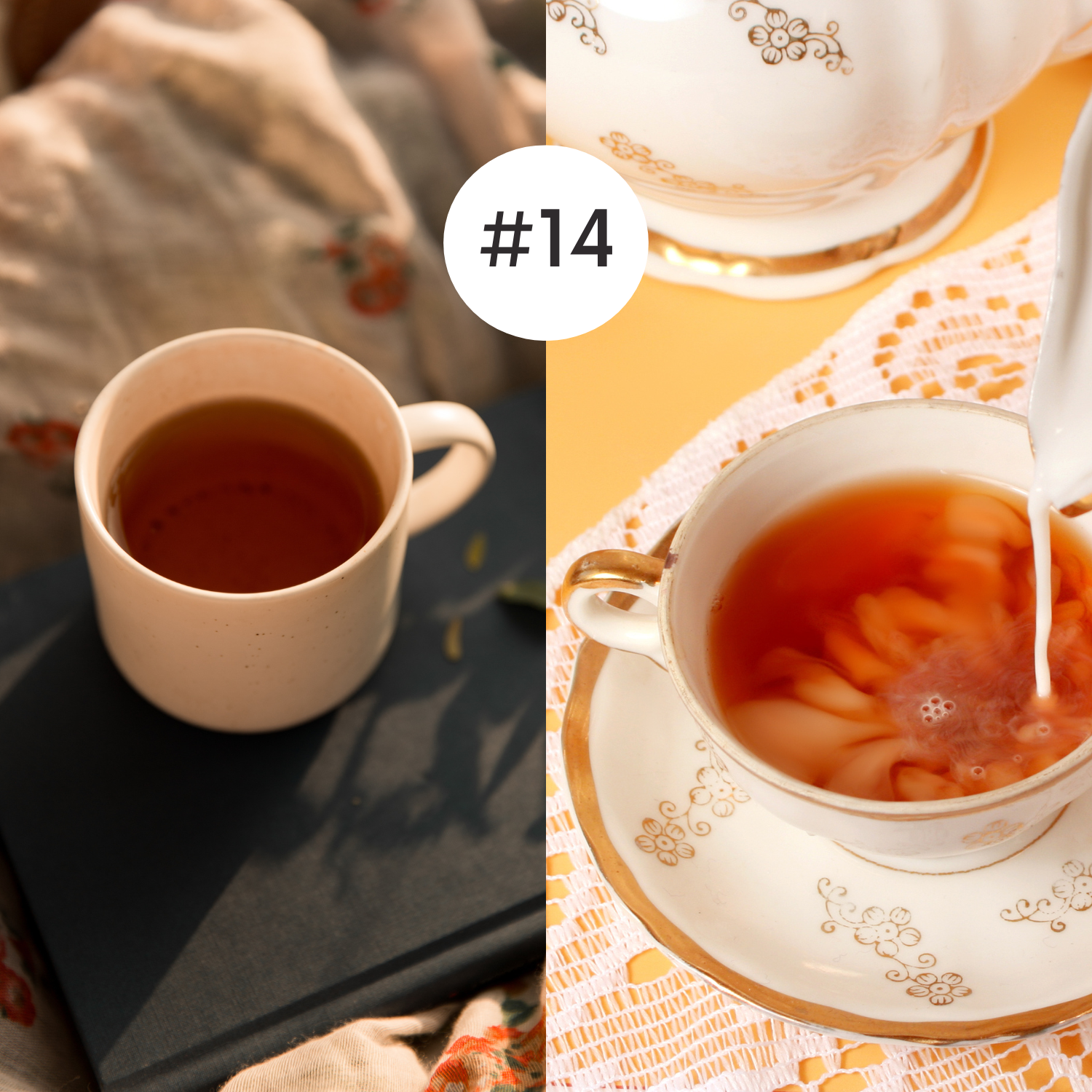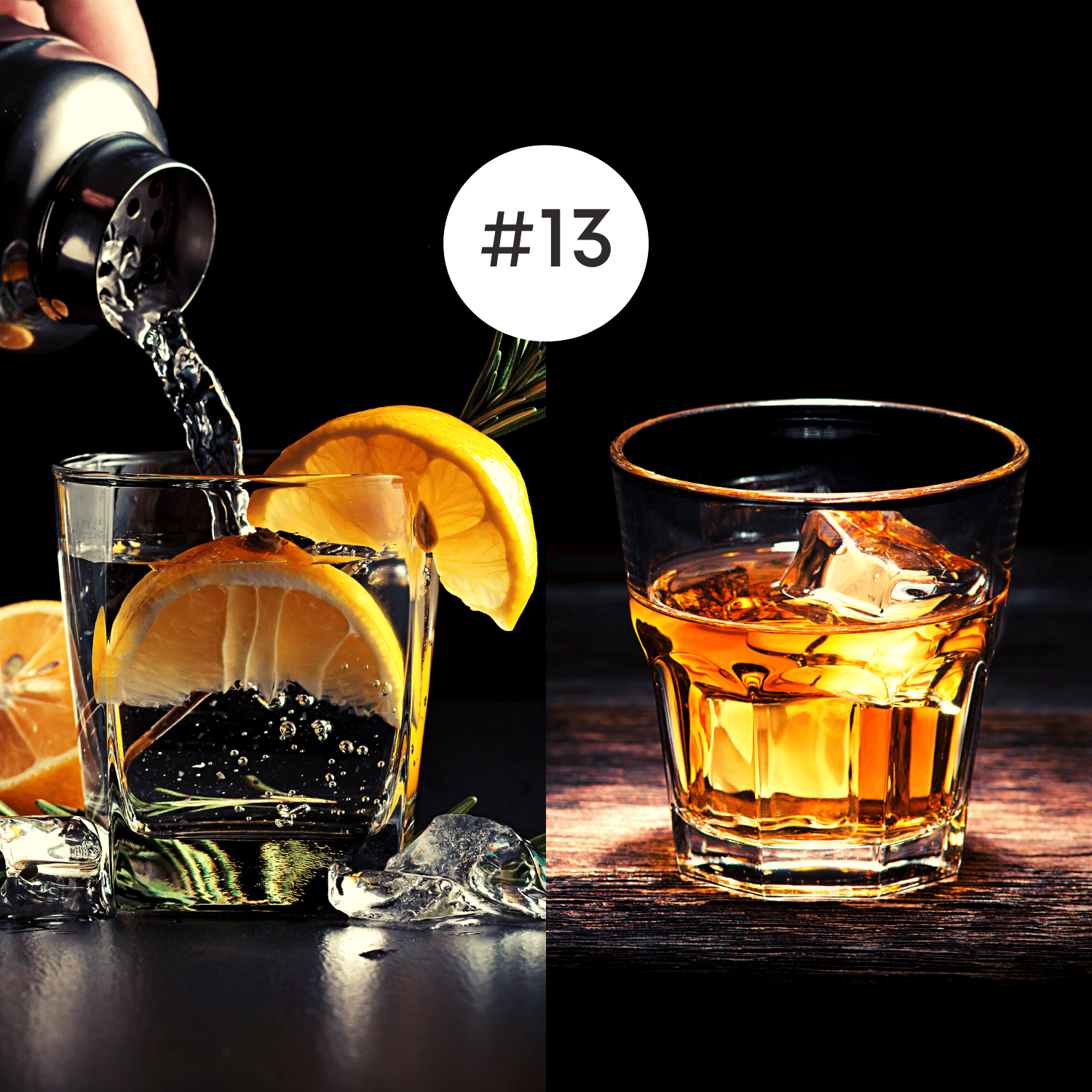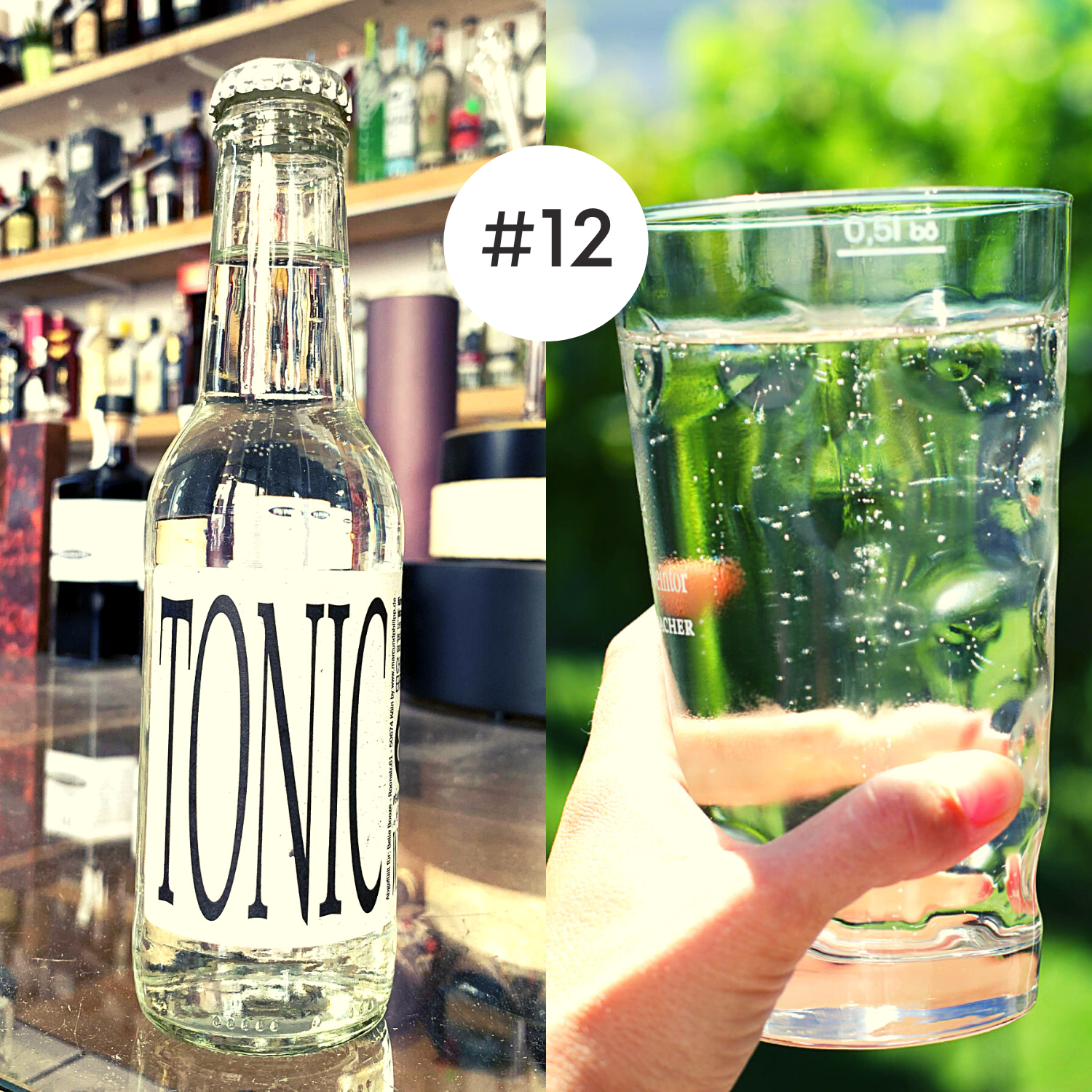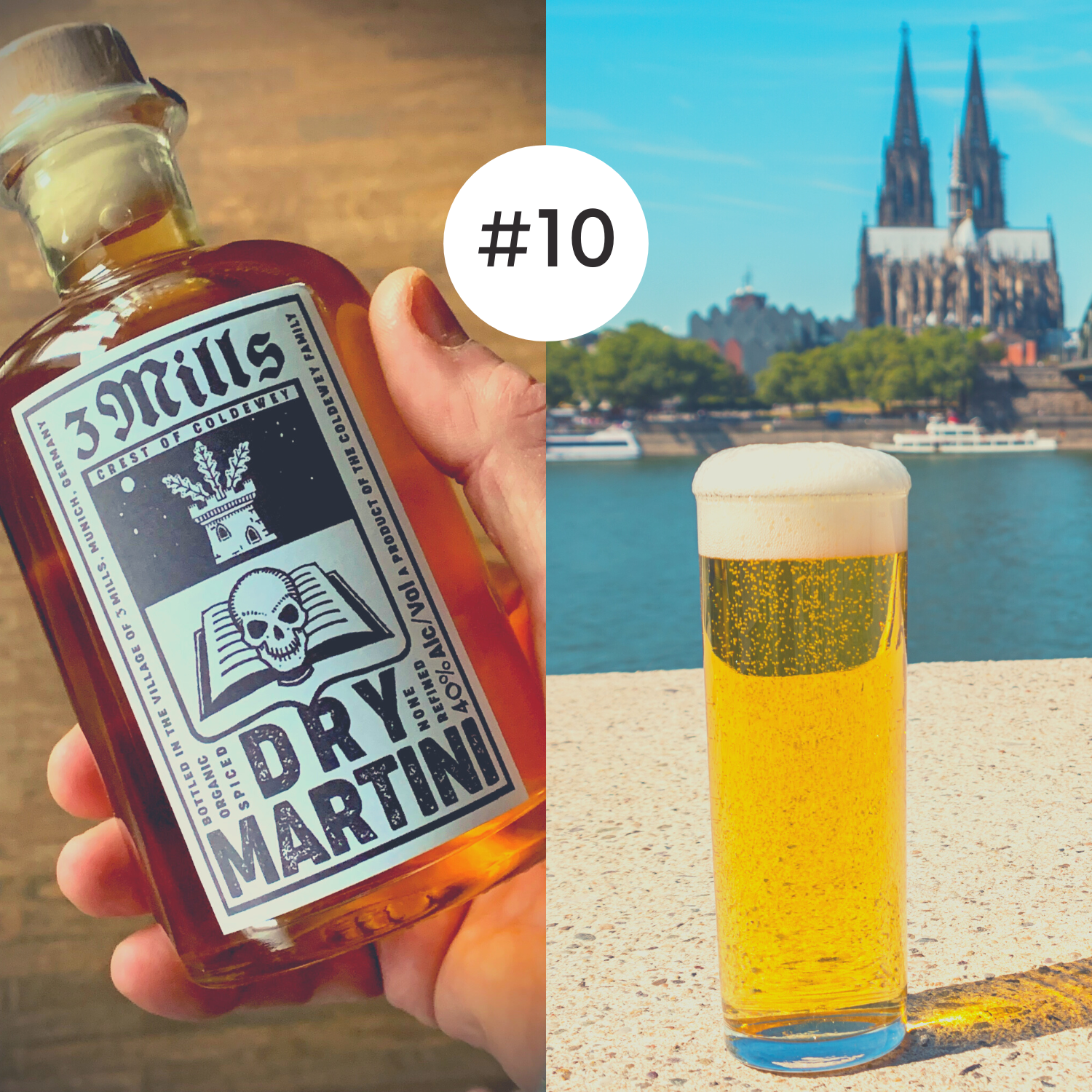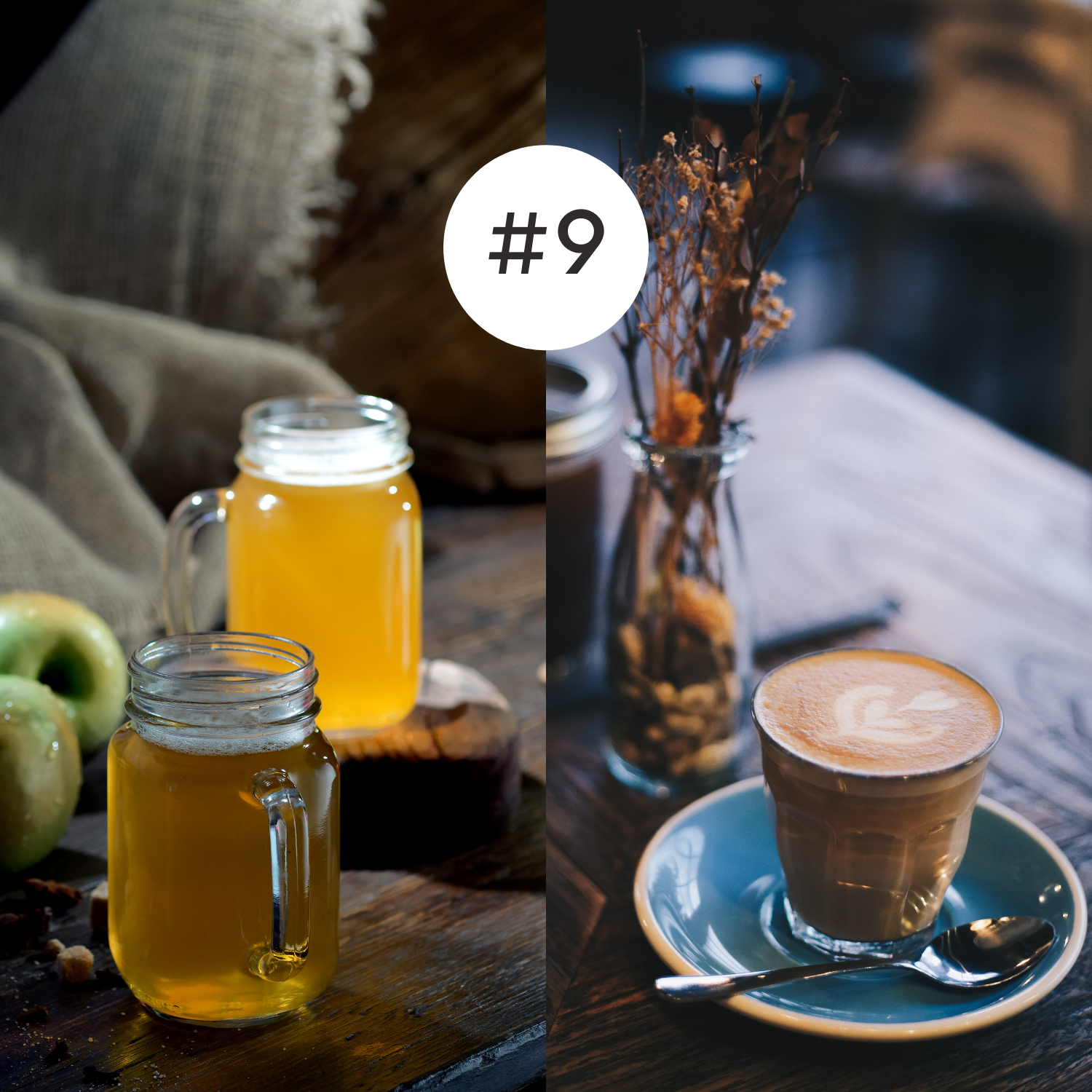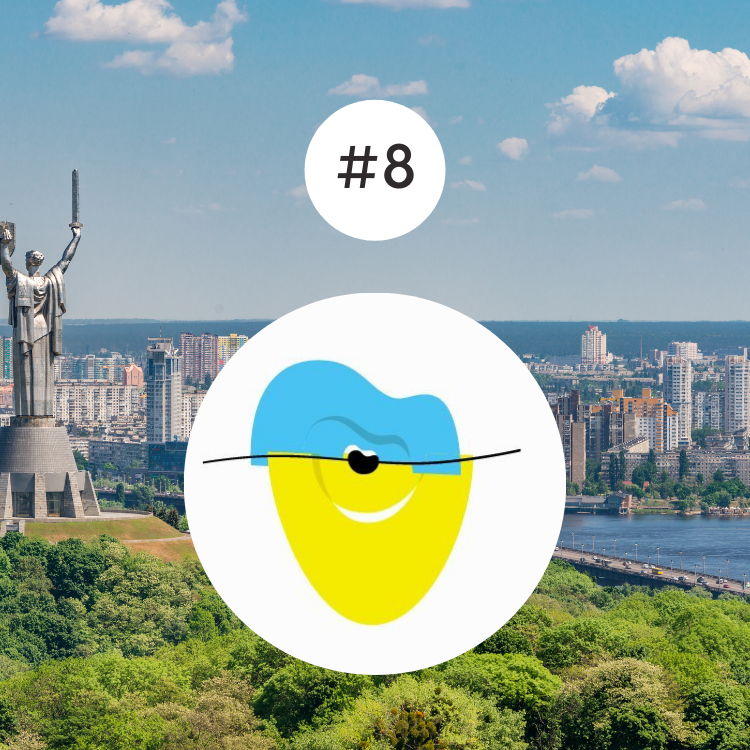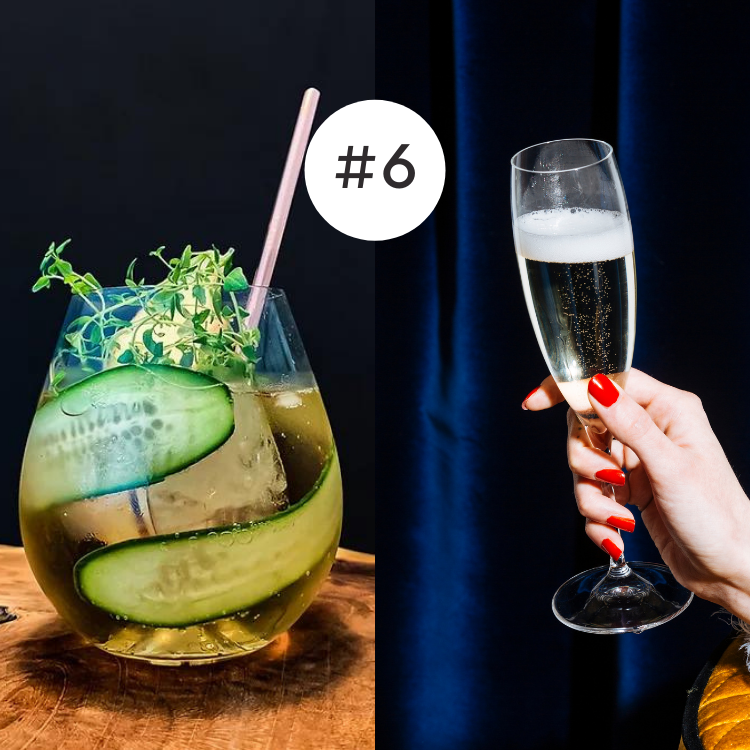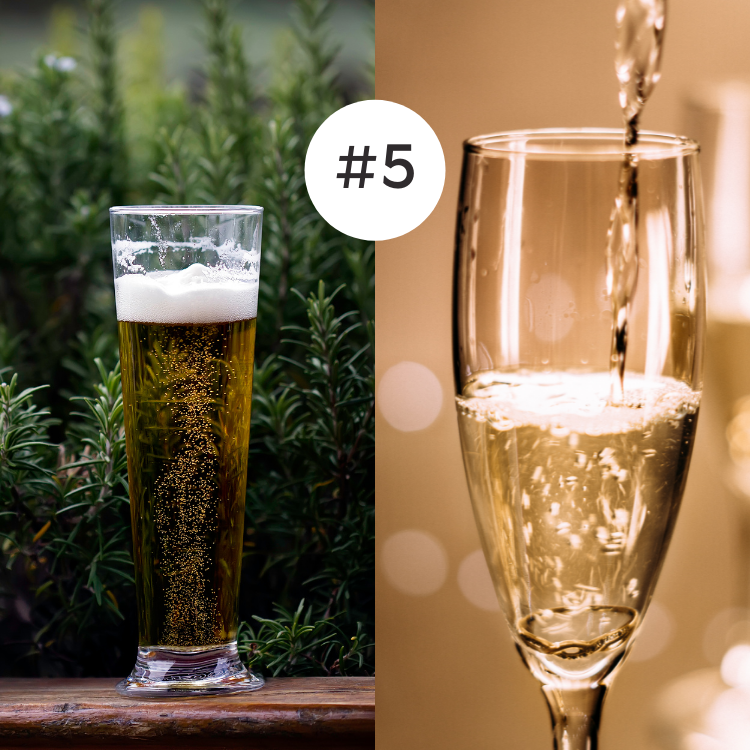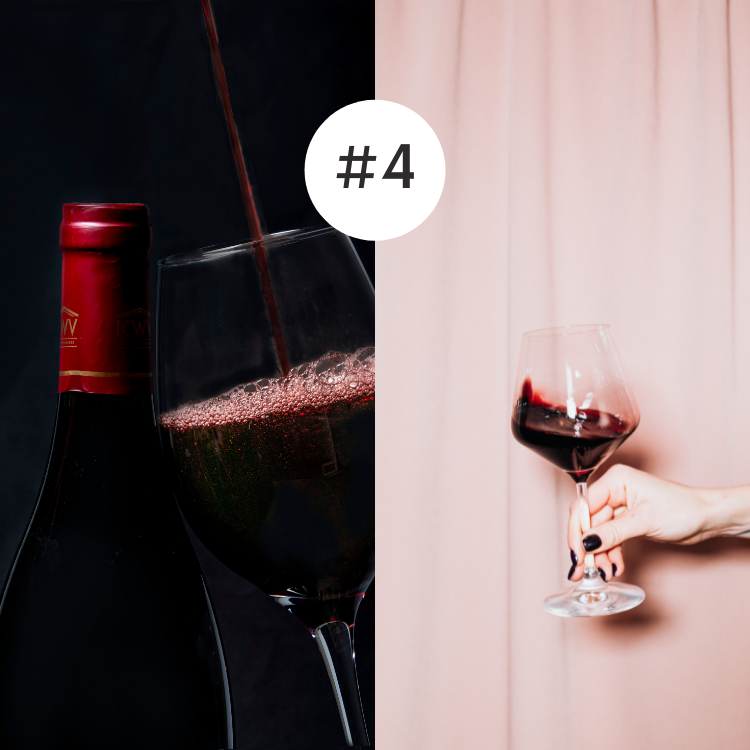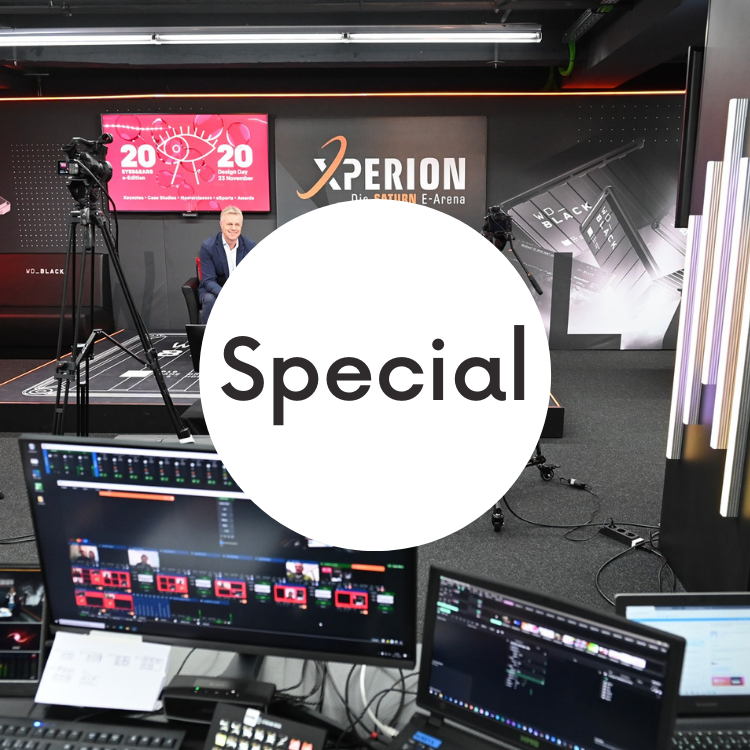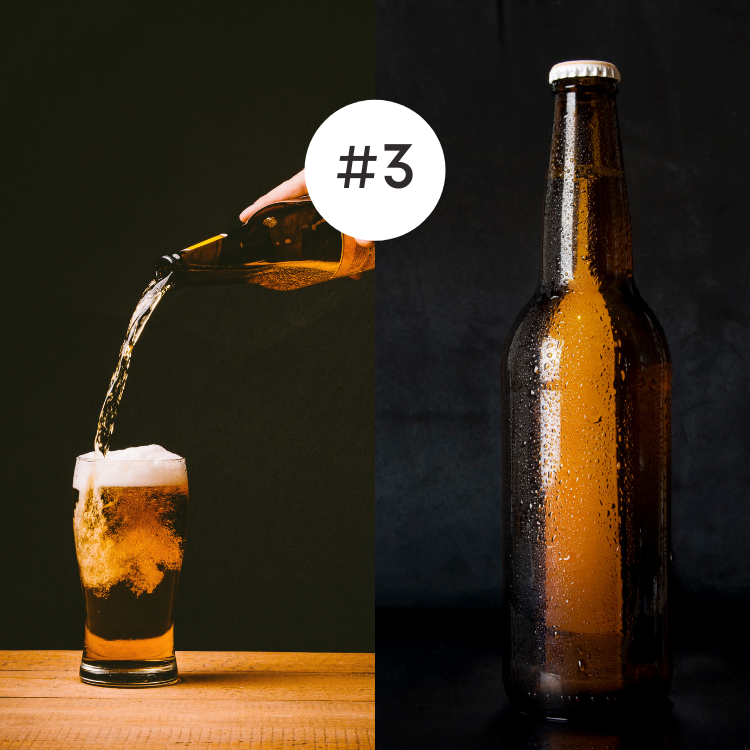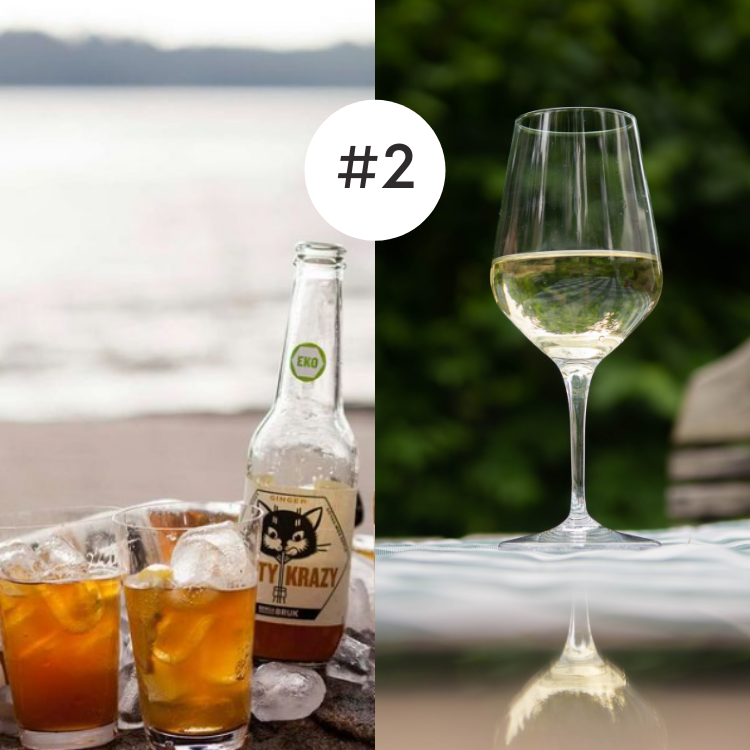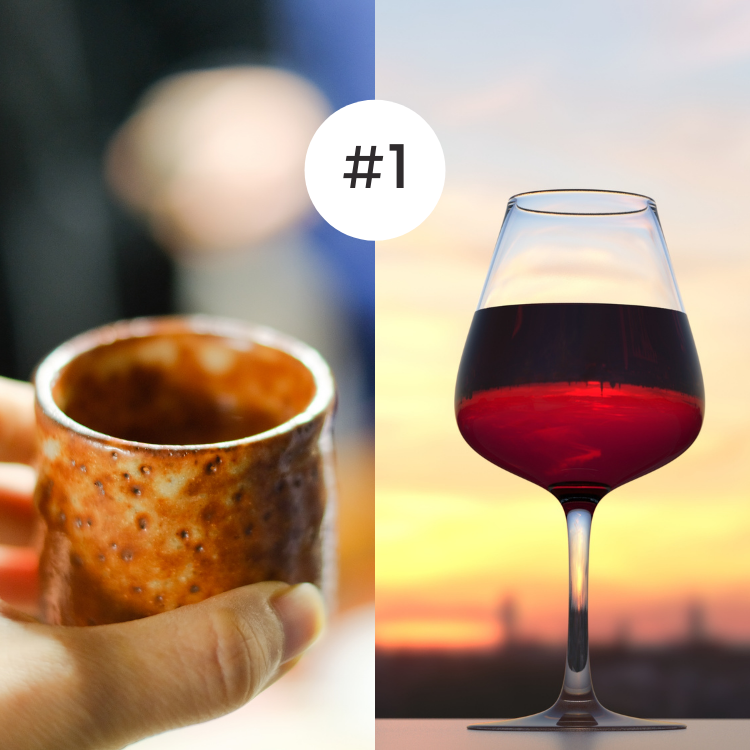News
A Drink with European Media Creatives
Ein Blick hinter die Kulissen der Medienbranche und in die Köpfe der Menschen dahinter – das soll "A Drink with European Media Creatives" ermöglichen. Mal mit einem Gast allein, mal mit mehreren europäischen Kolleg:innen, tauscht sich unsere Moderatorin über aktuelle Themen, spezifische & persönliche Hintergründe, berufliche Werdegänge und nicht zuletzt über das jeweilige Lieblingsgetränk aus.
#15: "Where do you see the media industry in five to ten years?" - Staffel 1 Finale

In der 15. Folge von "A Drink with European Media Creatives" heißt es: Staffelfinale! Unsere Moderatorin Corinna Kamphausen führt durch die vielfältigen Antworten auf die Closer-Frage "Wo siehst Du die Medienbranche in fünf bis zehn Jahren?" und blickt dadurch auf die vielen unterschiedlichen Gäste der Staffel zurück.
#14: Afternoon Tea with Richard Holman (Creativity Coach, Author, Speaker)

In der 14. Folge von "A Drink with European Media Creatives" gibt es Afternoon Tea! Unsere Moderatorin Corinna Kamphausen spricht mit Richard Holman, Creativity Coach, Autor & Speaker, unter anderem über seine schlimmste Bühnenerfahrung, Gemeinsamkeiten zwischen Kriminellen und Kreativen und die Notwendigkeit, die Diversität in der Medienbranche zu verbessern.
#13: Whisky & Gin Tonic with David Bailey (Executive Creative Director Magnetic)

In der 13. Folge von "A Drink with European Media Creatives" gibt es Gin Tonic und Nikka From the Barrel Whisky! Unsere Moderatorin Corinna Kamphausen spricht mit David Bailey, Executive Creative Director bei Magnetic in London / Manchester, unter anderem darüber wie David vom Skateboarder zum Gitarristen wurde, über die Digitalisierung der Medien und darüber, wie es war, die BBC-Schrift "Reith" zu designen.
#12: Tonic & Schorle with Sebastian Gsuck & Nûjîn Kartal (MediaApes)


In der zwölften Folge von "A Drink with European Media Creatives" gibt es Tonic, Weißweinschorle und Rhabarberschorle! Unsere Moderatorin Corinna Kamphausen spricht mit Sebastian Gsuck & Nûjîn Kartal, den MediaApes aus Neustadt an der Weinstraße, unter anderem darüber, wie Audio in der Medienbranche immer noch vernachlässigt wird, welche Möglichkeiten 3D-Audio für TV und Film eröffnet und über die fehlende Diversity im Audiobereich.
Kopfhörer empfohlen!
#11: Café & Weißwein mit Markus Gull (The Story Dude)

In der elften Folge von "A Drink with European Media Creatives" gibt es Café und Weißwein! Unsere Moderatorin Corinna Kamphausen spricht mit Markus Gull, dem Story Dude aus Wien, unter anderem über die Herkunft des Namens "Story Dude", sein immersive Projekt "NOAH" und die Herausforderungen von Live Produktionen.
#10: Dry Martini & Kölsch with Michael Coldewey (Director & Professor for VFX)

In der zehnten Folge von "A Drink with European Media Creatives" gibt es Dry Martini und Kölsch! Unsere Moderatorin Corinna Kamphausen spricht mit Michael Coldewey, Gründer von TRIXTER, sowie Professor an der HFF Hochschule für Fernsehen und Film München und der MD.H Mediadesign Hochschule München, unter anderem
darüber wie er als deutscher Animationsproduzent erfolgreich in der amerikanischen Filmindustrie wurde, darüber, dass Kreative Chaos und Organisation brauchen, um zu funktionieren, und warum er Filmrollen in ein amerikanisches Studio mitbringen musste.
#9: Apple Cider & Coffee mit Brett Richards (Chief Creative Officer Brokendoll)

In der neunten Folge von "A Drink with European Media Creatives" gibt es Kaffee und Apple Cider! Unsere Moderatorin Corinna Kamphausen spricht mit Brett Richards, Chief Creative Officer der schwedischen Agentur Brokendoll, unter anderem darüber, wie er die Agentur nach seinem Umzug nach Amerika leitet. Außerdem reden sie über die Schwierigkeiten einen Game-Trailer zu produzieren, ohne ein Spiel zu haben, wie wichtig die Community dabei ist und welche Unterschiede er nach Brokendolls Wechsel von der Fernseh- zur Gamingbranche festgestellt hat.
#8: Ukraine-Special mit Oleksandra Doroguntsova (Creative Director Banda)

Keine Getränke, aber dafür intensive Gesprächsthemen erwarten Euch in der achten Folge unseres Podcasts "A Drink with European Media Creatives". Oleksandra "Sasha" Doroguntsova, Creative Director Banda, spricht mit unserer Moderatorin Corinna Kamphausen über die aktuelle Kriegssituation in der Ukraine, wie sie die erste Zeit erlebt hat und wie Arbeiten ihr dabei hilft, sich abzulenken. Außerdem sprechen die zwei über die Wahrnehmung von Frauen in Führungspositionen und natürlich über die grandiosen Arbeiten der ukrainisch-amerikanischen Agentur Banda.
#7: Iced Tea & Pastis de Marseille with Emmanuelle Lacaze (President GÉDÉON)

In der siebten Podcast Folge von "A Drink with European Media Creatives" gibt es Eistee und Pastis de Marseille! Unsere Moderatorin Corinna Kamphausen spricht mit Emmanuelle Lacaze, Geschäftsführerin der Pariser Agentur GÉDÉON, über Frauen in der Medienbrache, darüber wie Kreation und Technologie zusammenarbeiten können und über Erfahrungen mit Jobs in verschiedenen Ländern.
#6: AERE Hamburger Mule & Prosecco with Barbara Simon (Creative Director & VP of Eyes & Ears of Europe)

In der sechsten Folge von "A Drink with European Media Creatives" gibt es ÆRE Hamburger Mule, ein Cocktail aus ÆRE Korn, Ginger Ale, Ingwer und Gurke, und leckeren Prosecco. Corinna Kamphausen interviewt Barbara Simon, Creative Director aus München und Vizepräsidentin von Eyes & Ears of Europe. Die beiden sprechen über Kreativität, familiäre Hintergründe und Umzüge für die Liebe.
#5: 25th Anniversary Prosecco & Gooisch Blond mit Dann Smit (Creative Director / Founder CapeRock)

In der fünften Podcast Folge von "A Drink with European Media Creatives" gibt es Gooisch Blond, ein niederländisches Bier aus Hilversum, und den besonderen 25th Anniversary-Prosecco! Unsere Moderatorin Corinna Kamphausen spricht mit Dann Smit, Creative Director und Geschäftsführer der niederländischen Design Agentur CapeRock, über den schnellen Inspirationsinput durch Pecha Kucha, den westlichsten Punkt Europas und das Für und Wider von Pitches.
#4: Graham Vintage Port & Adega de Pegões mit Nicolau Tudela, Art Director RTP

Mit der vierten Podcast Folge von "A Drink with European Media Creatives" ist Eyes & Ears LIVE zurück aus der Sommerpause! Bei einem Glas Port- bzw. Rotwein sprechen Nicolau Tudela, Art Director beim portugiesischen Sender RTP, und unsere Moderatorin Corinna Kamphausen unter anderem über Philosophie und deren Einfluss auf Künstler:innen sowie über die neuen Idents des Senders RTP2. Außerdem erfahrt ihr, wieso Nicolau Tudela die Musikrichtung Fado besonders schätzt und welchen Ursprung und Inhalt diese hat.
Special Episode mit Norbert Grundei, Head of Audio Strategy / Head of Audiolab THINKAUDIO Norddeutscher Rundfunk

Norbert Grundei ist Leiter der Audiostrategie beim NDR und leitet das THINKRADIO Audiolab des Norddeutschen Rundfunks. In seiner Funktion bei THINKRADIO ist er für die agile Entwicklung neuer digitaler Audioprodukte und der jungen Audiomarke N-JOY verantwortlich. Auf seine Initiative hin entstand das "NDR Info Coronavirus Update", das als der erfolgreichste Podcast-Start in Deutschland gilt und in den ersten 6 Monaten mehr als 60 Millionen Mal gestreamt wurde.
Norbert war Mitglied des Teams, das "funk" - das junge Content-Netzwerk von ARD und ZDF - entwickelt hat. Seit 2016 ist er einer von zwei NDR-Beauftragten für funk. Der NDR hat für "funk" erfolgreiche YouTube- und Social-Formate wie "Kliemannsland", "WUMMS" und "STRG-f" entwickelt.
Norbert ist Master of Business Administration und hat während seines Studiums ein Konzept für das Innovationsmanagement in Medienunternehmen entwickelt.
Er ist Mitglied des Beirats des Digital Journalism Fellowship der Hamburg Media School.
Für seine Arbeit wurde Norbert mehrfach ausgezeichnet, unter anderem mit dem "Grimme Online"-Preis, dem "Georg von Holtzbrinck Wissenschaftsjournalismus-Preis" und dem "Deutschen Radiopreis".
#3: Jungle Joy & Grimbergen with Isabelle Maselis (Head of Branding and Communications Streamz)

Isabelle Maselis ist Head of Branding und Communications von Streamz, dem neuen flämischen Streaming-Dienst in Belgien. Streamz kombiniert regionale Fiction mit internationalen Serien von HBO, HBO Max und anderen Studios. Marken aufzubauen ist ihre Leidenschaft: Sie leitete den Launch von Streamz im September 2020 und hat 2018 am Rebranding von Play (Telenet) und 2016 am Rebranding von Sunlight (Unilever) gearbeitet.
Sie liebt es, in der Unterhaltungsbranche zu arbeiten, da es sie fasziniert, Synergien zwischen Earned Media, wie PR und Influencer, und Paid Media aufzubauen. Dabei ist jede Serie einzigartig und erfordert einen maßgeschneiderten Marketingansatz.
Sie lebt mit ihrem Mann in Brüssel und produziert in ihrer Freizeit Musik.
#2: Kitty Krazy and Green Veltliner with Christer Mellstrand (Marketing Director SVT)

Christer Mellstrand hat über 20 Jahre Erfahrung in den Bereichen Management, Marketing und Kommunikation. Seit 2016 ist er Marketing-Direktor bei SVT, dem nationalen öffentlich-rechtlichen schwedischen Fernsehsender. Er liebt die Herausforderung und hat am meisten Spaß an seinem Job, wenn er am härtesten und schwierigsten ist. Zum Teil, weil er an Problemen arbeiten darf, aber auch, weil es immer einen klugen Kollegen gibt, den er an dieser Stelle zu Rate ziehen kann.
Zuvor war er der Leiter der Inhouse-Agentur von MTG TV und Marketing Manager bei TV 10. Er hat auch viele Ämter bei der Stadt Stockholm ausgeführt und war Vorstandsmitglied bei den schwedischen Werbefilmproduzenten (SRP). Außerdem hat er als Berater für die internationale Non-Profit-Organisation Reach for Change gearbeitet.
Im Jahr 2020 war er einer der vier Finalisten für den Marketing Manager of the Year, verliehen von Marknadsföreningen Stockholm.
#1: Sake & red wine with Cécile Chavepayre (Creative Director ARTE)

Cécile Chavepayre ist seit 2012 Creative Director bei ARTE GEIE. Außerdem ist sie CEO von Chavepayre & Chavepayre, ihrer eigenen Firma, die Websites wie z.B. die für Château de Ferrand erstellt. Chavepayre begann ihre berufliche Karriere als Französischlehrerin, wechselte aber 1998 in die Designwelt und arbeitete als freiberufliche Designredakteurin und Produzentin bei France 2, M6, TV5 und La Cinquième. Danach war sie für Canal France International (CFI) tätig, wo sie die Marken NBC Namibia und PBS Thailand betreute, und für France Television. Cécile Chavepayre hat für ihre Arbeit viele Auszeichnungen erhalten: Sie wurde mit Gold bei der EBU Connect und zweimal mit Silber bei der Promax ausgezeichnet. Seit 2012 wurde ihre Arbeit für ARTE bei den Internationalen Eyes & Ears Awards mit 11 Gold, 9 Silber und 4 Bronze gewürdigt.

|
| A Drink with European Media Creatives Episode 1 |
|
| Sake & red wine with Cécile Chavepayre (Creative Director ARTE) |
|
| [Intro Music] |
| CK: | A very warm welcome everybody. My name is Corinna Kamphausen and I'm the CEO of Eyes & Ears of Europe. And this is "A Drink with European Media Creatives" by and with Eyes & Ears of Europe. So nice to have you all with us, now we're making ourselves very comfortable with a nice, tasty drink and with some interesting guests. So, let's talk about creativity tonight. Let's talk about how creativity helps through these strange times and what helps creatives through these strange times. So, let's start today with a guest who I'm very happy to have with us. So welcome to "A Drink with European Media Creatives" my dear Cécile Chavepayre. |
| CC: | Thank you, thank you, Corinna. |
| CK: | Welcome Cécile [laughs}! It's great to have you here. Thank you so much for doing this for us because it's our absolutely first time that we do a format like that. So, thank you that you that you are the first to do it. |
| CC: | Thank you, I'm really honoured to be the first one. I'm happy to. Thank you, Corinna. |
| CK: | Absolutely. Would you be so kind to introduce yourself just in a few sentences? |
| CC: | Yes, I've been doing the art direction, creative direction for ARTE since 12 [laughs]. Is it OK to say this, 12? |
| CK: | 2012 yeah, of course, of course. |
| CC: | Yes, that's it. I think everybody here knows ARTE, so maybe I don't have to introduce ARTE. |
| CK: | No, you don't have to [laughs]. |
| CC: | OK, so that means to align the general…align all the design of ARTE that ARTE is showing, to the general strategy. Which is complicated because as you may know ARTE is Franco, German and more…media. |
| CK: | Yeah, yeah. |
| CC: | So, so it's not…It's not really totally easy to bring up a unified form between several territories, as we do now, because we have several territories, which are of course Germany, France and also Belgium etc. and also now England, Spain, Poland, Italy… that's it. |
| CK: | Oof, that's a lot…a lot of different cultures. |
| CC: | Yes, yes, that's a lot, and of course it's a system of medias. Every media is today, so it's also a website, an application, and an app. And also of course the YouTube channel. |
| CK: | Woah, that really seems to be hard work and for example, I think it's absolutely interesting because you're working together with different kinds of people and different cultural backgrounds. So, working together with Germans and French people, so does that feel like… Being a little cultural clash sometimes or…? |
| CC: | Yes, it happens. |
|
| [both laugh] |
| CC: | Yes, I would lie if I told you "No, it's really cool. Everybody is still on the same line all the time, and everybody is super. Everybody agrees on every project." That's wrong because there are specificities due to cultural differences, of course. |
| CK: | Yeah. |
| CC: | But I remember at the beginning, at the very beginning, when I, when I started at ARTE it was really weird because the German people always tend to see Croix gammée. I don't really know, you know…From the 3rd Reich… all the time in the projects and there were absolutely none of that, but the trauma was coming up all the time. And now when a French designer works on forms and does some straight lines, it's like "Oh oh, be careful." [laughs] |
| CK: | Yeah, yeah. |
| CC: | For example, this is a really strong example, but it happened…I don't know, maybe four or five times. |
| CK: | Yeah, I can understand that because we're really a little, well, nervous about that. Absolutely because for historic reasons. And yeah, I think that French people don't have that feeling with the runes, of course, yeah. |
| CC: | Yes, but of course you know we didn't bring up that kind of form. It was really a reminder, like "That reminds me of…" |
| CK: | Yeah, so interesting. OK, what we want to know here in this format, what we want to explore is how actually the brains behind the creative projects are. So, what moves you? Who are you? And what do the brains prefer? Do you…are you more analogue or digital? And the very very very best and most important question is, what is your go to drink? So, what's the drink that you prefer? So, mine, at the moment, is a French wine [laughs]. A French wine that's a Médoc, a Bourbon La Chapelle, a Château Bourbon La Chapelle. So, I'm drinking the Médoc, and I hope that you… [laughs] Do you have a wine as well or something to drink as well? |
| CC: | No, yes, I have something to drink because you asked me, because otherwise I would drink, of course, water because I love water. |
| CK: | Yeah, you can drink water as well. |
|
| [both laugh] |
| CC: | No, I opened my refrigerator and I found some very good Sake and it's cool. So, I drink sake. |
| CK: | Alright, prost! |
| CC: | Cheers! |
| CK: | What do you say in France? |
| CC: | Santé |
| CK: | Santé, alors, santé |
| CC: | But actually, I think the best drink comes from the place where you are, you know? It's really nice to drink some Médoc if you are in the Médoc. I think it would be really nice to drink some Sake if you're in Japan, which I'm really not, I've never been in Japan. But that's it. And I think if you, except water always, which is really pure treasure, but if you, except water, I don't know who say that, but I think "Happiness is equal to two glasses of alcohol", not strong alcohol because that's not happiness [CK laughs], that's…I don't know…dizziness, but happiness is two glasses of alcohol, which is very complicated to keep. |
| CK: | Because you don't know which alcohol you want, or…? [laughs] Two glasses of wine for…yeah, ok. |
| CC: | Yes, two glasses of wine for example. Have you seen that movie Drunk? |
| CK: | No, no. What is it? [laughs] |
| CC: | That's a theory which is in Drunk or also… and it's true, I have experienced that happiness is two glasses of sweet alcohol [both laugh], I would say wine for instance. |
| CK: | So, two glasses of wine and two glasses of water in between. That's OK. [laughs] |
| CC: | Yes, yes, must be something like that, yes. |
| CK: | So, we are all in a very special situation at the moment, I think. So, can you describe the Corona situation in France at the moment and where do you stand there and what are you doing? How it touches you and your profession, your job? |
| CC: | It's starting to be a little bit complicated. I think. At the moment. Because now it's been one year and everybody is tired, a little bit tired and it's complicated, really, to work from home, here, this is my home. So, I'm in Paris. I'm not in Strasburg, ARTE is in Strasburg. And really, it's complicated. I have to go there sometimes to go to the audio to, you know, have a good sound on some projects. I have to go there to work with the graphic designers also, because there's something you just can't do from home. So, it's beginning really to be complicated also to see your face, I mean my face, in the screen all the time. It's not normal. I was not prepared, and I think none of us was prepared to see our own face all day long. [CK laughs] If something, if someone could bring me another face, I would be very happy, for example, at the moment and I think it's the same for everybody, really. So, some people are getting, I think, more confident because they could have a vaccine soon or something like that. But we don't know, actually. No one knows if it will be really efficient. |
| CK: | Yeah, I hope so, let's really hope. I just heard of a colleague just 10 minutes ago. My colleague said, "I will get the vaccine in two weeks!" or something like that. "I will get the vaccine!" That's great because everybody feels so "Whoa, happy!" to get out of this bad situation right now. |
|
| Yeah, but you're right, I can't see my face anymore as well. [CC laughs] And normally if I go to the office, it's just, well, I'm going to the office and you don't do anything, it's just, ok, you're normal. [laughs] And now I come to the office I go straight to the toilet and do my make-up or something, like a Masquerade, so I don't feel like I'm normal, I'm always, well, in some kind of hosting position, I don't know. |
| CC: | Yes, yes, and that's weird. Well, we were not designed for that. [both laugh] I wasn't designed for that at all. |
| CK: | Yeah, yeah OK, well we all hope that this situation will end sometime, hopefully. |
| CC: | It will end. Maybe it will end because there will be no more humans, so it will end, [both laugh] but most surely, because the virus will be a small virus like a cold. |
| CK: | Yeah, I'm really looking forward to coming once again back to Paris because I love Paris in the springtime, or, you know. |
| CC: | You wouldn't like Paris right now. You love Paris because of the café and the restaurants and the and the galleries etc. But now, when you know Paris, no, that's not a good moment. |
| CK: | Yeah, that's the same in Cologne at the moment. It's just, you can't feel how the people are because you don't see any people on the street. Or you see people on the street but it's different. It's yeah, all the restaurants have closed. Is it the same in Paris at the moment, in France? |
| CC: | Yes, yes Cafes, Restaurants are closed and it's so important in Paris. You know what we say about Paris? No one comes from Paris, which is obviously wrong because some people were born in Paris. But most of the people that live in Paris weren't born in Paris, though we all came to Paris. I came to Paris. I was from the Southwest where you have your wine. |
| CK: | Oh, alright. [both laugh] |
| CC: | But I came to Paris because I wanted to work in Paris because it's easier than in the rest of France, but also because of the cafés and restaurants. Because this is Paris! And the theatres and the museums. In Paris without café, I don't know. That's not Paris. |
| CK: | Yeah, OK so next year in summer I come. [laughs] |
| CC: | Next year, yes. Maybe Emmanuel Macron will talk…I don't know…maybe today or tomorrow and maybe it will reopen. I don't know. I hope so. |
| CK: | That would be great because I just heard that the Netherlands will open at the moment and that Australia they are open for months right now and that they are…They're really absolutely good. They're an island, so they can do everything, but yeah. It would be really…well it would better the situation, I think. So, I read an interview [laughs] about you, but it's an old interview, but it was a Page interview and they said you first studied French literature and then even have been a French teacher for a while. And then, how did you manage to switch from their teacher part to the creative director? [laughs] What happened there? |
| CC: | Well, actually, when you are a teacher, you are a media. Yourself. So, it's not really a surprise…a total surprise to come from teaching into the media. I'm not the only one. The point is, when you are a teacher in France, you are once a teacher, all your life, a teacher. And I wasn't sure I wanted to do that all my life. Maybe I should have because it was really super nice. I really loved that, you know, it's crazy…you talk, and people listen to you. |
|
| [both laugh] |
| CK: | [laughs] Yeah, you never know…normally you don't know but they're obliged to. |
| CC: | They write down what you say, and they ask you questions. No, it is really wonderful, and I really loved that. I was teaching French, which is a super material. So, I really loved that. But after that, you know, when you can read a text, when you know how to read a text, to interpret it, etc. Then you can read an image. It's the same. More or less then you can read many things. So, when I had this opportunity to come to Paris and to work for France 2, at the moment, I was writing down interviews at the moment when I started, I said "Oh yeah, why not? Why not?". I was young, why not? So, I started like that and after that, because I was good at writing really short forms, you know? So, for the interviews I was very good at titles etc. So, they asked me if I wanted to go to write some trailers and I went. I joined the team, the trailers team, and then after that I realised…no, not realised, this is not the correct word. I did, not the editing, but I did the concept of the trailers and after that I ruled the service…the trailer service in France 5 then ARTE asked me if I wanted to be their creative director and it was…it was really nice for me. I had just finished an MBA, so for me it was perfect. Perfect timing. |
| CK: | So, you studied afterwards? Before, you went to the media and then you studied. Well, that's great. |
| CC: | Yes, yes, because I was at France 5 for, I don't know 13 years, and once I told myself, well I have learned many many things, but no one knows. [both laugh] So, I had to get a proof, so I did that MBA to get a proof. But anyway, ARTE asked me, and they didn't know I had this MBA. So, it's really mysterious. |
| CK: | How did that happen? So, what did they do? Who was the one to ask you? Did they telephone you? What did they do? |
| CC: | Yes, it was someone that asked France Television and at France Television they told them "We have Cécile Chavepayre, she does some corporate films that are little bit weird and not bad. Maybe you should meet her." |
| CK: | [laughs] OK, OK, that's great. |
| CC: | It was Vincent Meslet from ARTE France. And now he's not ARTE France anymore. And then I met the whole ARTE board. Actually, I was very impressed and happy. |
| CK: | But was that all the politicians there? The people that you met? Or was that…? |
| CC: | No, I meant the President, Vice President, President Véronique Cayla at ARTE France, Vice President Gottfried Langenstein. And that's all. And the programme director, not politicians. No, no. I don't do politics, yet. |
|
| [both laugh] |
| CK: | Yeah alright. [laughs] So, you're starting over right now. Starting with female politicians. |
| CC: | I don't know what I would do after that. |
| CK: | You never know, but what I really found absolutely interesting when we last exchanged ideas was that you told me that in France there are no other creative directors in public service media than you. No other female creative directors. |
| CC: | No, there is one actually, in France 5. |
| CK: | OK, there's one, alright. |
| CC: | Yes, only one. |
| CK: | But that's not too much, so why don't they? Why don't they take females? Why don't the females want to be in that position? They are as creative as the others. |
| CC: | I think they do. I think they would do. I have to admit, and I think my colleagues agree with that, it's a complicated position because the word "artistic" is both something very appealing and very not appealing for any direction. Because it's really…I don't know how to say that…everybody wants to be a Creative Director, an Art Director. Everybody wants to do that job. It sounds really cool, you know, but nobody wants to do it actually, [both laugh] because you are really in between two realities, two super strong realities. Because most of the people think they can do your job. Everybody has an opinion about the design, everybody. So "Why her? Why him?" and "Why him?". It doesn't…it's not, It's not a problem for most of the of the of the guys. You know? "Why him?" Because it's me! |
| CK: | Who else? |
| CC: | But for women, "Why me?" and when you are a woman, yes, yes indeed, "Why me?" Am I the good person? Everyone thinks that, not everybody but, you know, it's very common. |
| CK: | Am I 100%? You have to be 100% before you choose to do the job, you think? |
| CC: | Yes. |
| CK: | Yeah, yeah, I think that's what women think, really. |
| CC: | Because, you know, it's really a job that everybody thinks they can do it, but it's obviously totally wrong. [laughs] You have to be convinced you can do it and nobody, nobody will tell you can do it. You have to be convinced because there is no School of Art director. |
| CK: | Yeah, so well, what do you need to be art director? Do you do need a special feeling for things? Do you…what do you need? Do you need to have special drawing experiences or, I don't know, what is the thing that you need to be an Art Director in Public Media Services? |
|
| [AD BREAK] |
| CK: | Hello dear podcast listeners, I am sorry for the brief interruption but now it's time to hear about what's next with Eyes & Ears of Europe. If you did not know by now: This podcast is not only a podcast but also a monthly Livestream. Last month, we talked to Cecile Chavepayre and had a blast. Our next guest will be Christer Mellstrand, the Marketing Director of Swedish National Public Television Broadcaster SVT. I am really happy, that I can talk to him live on 27th of May. If you want to join the live conversation and ask your own questions, just go to eeofe.org/live. Furthermore, I am looking forward to our EYES & EARS with the 23rd International Eyes & Ears Awards! The International Eyes & Ears Awards recognise particularly creative, innovative and effective design, promotion and brand communication measures. The trophies are awarded in different categories in the areas of Design, Audio, Digital, Craft, Promotion & Cross-Media. Projects published for the first time between 1 July 2020 and the end of June 2021 can be submitted. You can submit your projects until August 2nd. The Conference and the 23rd International Eyes & Ears Awards are going to take place from November 23rd to 25th. If you want to get updates on the speakers and the programme, sign up to our EYES & EARS Newsletter. More information can be found at eeofe.org/2021 or in the show notes, where we will also have as well as a link to our calendar, where we put all the information to upcoming events, like our EYES & EARS, our eSports-Day in July or our academies, the workshops of Eyes & Ears of Europe. Now back to Cécile. |
| CK: | What is the thing that you need to be an Art Director in Public Media Services? |
| CC: | You need…it's complicated to answer this question because I don't know in different…I have not been doing this in another media, so I don't know. Maybe it's different when you work for…I don't know…ZDF or TF 1…I don't know. But what I know for me, is that I need to be sure of what I know, first of all. Of what I've learned, and what I've learned, it means my personal experience, but also what I've learned, what I've read, what I've seen. So, I have to be sure of this, and I have to be sure I can use it all the time. You know, if everything is not right here in my library… everything must be right here at the same time at every moment, that's the first thing. Second, I have to have my brain totally empty. [both laugh] Because what is most, I think, most complicated is to consider a question or matter or problem that comes to you with a fresh look. And for that you both have to appeal your own culture and not. That's what's complicated, but it's really…it's really super interesting because it means to be alive. |
| CK: | Yeah, yeah, of course. |
| CC: | Yes, but another, I would say, another skill to work in a big organisation, because ARTE is not the most huge organisation of the world, of course, but you know, as we have two structures, ARTE Deutschland, ARTE France and ARTE G.E.I.E., it's a big organisation and you also have to be a little bit strong. I think. Yes, it's a skill that I think is important…or to look strong. If you're not inside, you can always look. |
| CK: | To be considered strong, ok. |
| CC: | No, but, you know, sometimes they ask us, we don't have…and then we work and then we learn in working. |
| CK: | Yeah, yeah, of course. |
| CC: | That's hard, things are. Everybody is not, is not coming into the world and is not. We are not. We don't have culture or strength. We don't have that already done, all built in. |
| CK: | You have to experience it. |
| CC: | We do that and, I don't know, because the most I'm getting old the most I think that intuition is really super important and my intuition is really developing and I must say during the past year I didn't have that much of distractions, so my intuition really grew up, and that's cool. |
| CK: | Well, we've got a question from someone. The question that the person is asking is what is your favourite part of the creative process? |
| CC: | It's just after the moment you think you will never succeed. [laughs] You think you're going to quit and maybe die after or something like that and it will be horrible, and the end of the world is coming very soon. And after that, I have an idea. The beginning of an idea, you know. And then… |
| CK: | OK, so then that's very important to me, because it brings me to the question of what inspires you. What gives you the ideas? |
| CC: | I don't want to sound too politically correct, but what inspires me is really people. Because all we do is to reach people and to create some emotions and that's it. If I feel there is something deep that can relate people, then I know it's a good way and then I can work and then I know it's the right inspiration. |
| CK: | Did you exchange the idea with the people then? If someone brings you to an idea and can you exchange the ideas with the others, but OK, that's another question, but I've got a question from go from Guido for Cécile, he asks which projects or creative campaigns at ARTE are you most proud of? |
| CC: | I'm never proud of what I've been doing. I'm so sorry, but no, I'm happy. [both laugh] I'm really sorry I would love to. I'm super proud about working for ARTE because ARTE is a super project really. I'm proud, I could say I'm proud, but happy, about the first idents we did for the first lockdown. The one with the tree because it involves really, really a lot of people and people worked with great quality of concentration, it was crazy, and I love that, and it was so quick and tense. You know, I love when the work is like that and so easy, too, super easy really. I had this idea of a tree relating everybody which is not an idea particularly bizarre. You know it's not. It's not super creative. But I had this idea, and it was…I found the right people so easily. Really it took one day and after that everybody started to work, and it was on air. I don't know. Maybe two weeks after, four idents, a new ident refreshing every day and we never did this. So that was cool. |
| CK: | That was…for me as well. It was absolutely creative, and it was really absolutely astounding that you choose the tree and that you choose to draw the tree. because I've never seen something like that before in media, so just for that. |
| CC: | That's something I never think of. I never think of "Nobody did ever do this…", I never think of this never, never. That's why I told you I have to be empty sometimes. [laughs] |
| CK: | Yeah, great, great! And that was so lovely. I really love this campaign and all the COVID IDs. That was, well, not the project that I was most proud of because there were lots of beautiful projects at our last awards. But that was a really absolutely interesting Award project for me. And I have another one, another question from someone anonymous: "Do you have special techniques to control your monkey mind? How do you empty your brain?" |
| CC: | Oh, it's super easy. [both laugh] It's really super easy to empty, I panic. [both laugh] And then after that there's nothing left, and that's perfect. It's you know, it's super well designed. We all have the same, so you panic. Then you reset and then it's cool. But I must admit the panic phase is not really the one I prefer. But it's a process. |
| CK: | [laughs] So, what about the people surrounding you? When you panic, what do you do when you panic? |
| CC: | [laughs] My companion, he looks at me and he smiles. That's all. He knows, that's all. |
| CK: | [laughs] That's great. Absolutely great and then you know it's OK. You have to wait for one hour and then she's getting back with really brilliant ideas. But that's great. Love that. [laughs] |
| CC: | One hour, maybe one day. |
| CK: | Alright OK, I've got some other questions that I was wondering about. Does there exist any design department at ARTE? |
| CC: | Not as you may imagine. Actually, there are designers, but there is not a creative department. We have graphic designers, and we adapt some things, they create sometimes some trailer, something like that. But when I arrived at ARTE I thought there was a huge team of 80 people and that's not the case. |
| CK: | OK, that was what I was wondering as well because there are so many absolutely super projects coming out of ARTE, ARTE in-House, so that I thought that there must be a great team. |
| CC: | You know, older, for instance, all the info when you look at ARTE Journal, the cooperate ARTE Journal design was made not in-house but inside, what's made inside is made in-house. So, there are two parts. |
| CK: | OK. |
| CC: | Maybe I could say I'm proud of the info design. Maybe I could say I'm proud of this because it's so radical. I really like it, yeah. |
| CK: | Yeah, yeah, and what I really like is the redesign that you did in 2017. Do you remember that with the logo as a magnet because you still use it, yeah? |
| CC: | Yes, we do still use it. Yes, yes of course, yes. |
| CK: | How did this happen that you came to the corporation with the agency? Did you have a pitch for that? |
| CC: | Yes, of course. We were obliged to do that because we are public media. So yes, we did a consultation, and it was The Partners who won the market, I don't know, no it's not good. It's not the same. It's not a good sentence, erase. [laughs] We choose that project because they treated ARTE as a very strong brand with that idea of magnet ARTE that attracts culture in Europe. So, we really loved that idea and also really love, in the execution, the fact that it was a little bit "Craft" in, you know, in the letters. We love that also and what I really liked at the beginning. But no one saw that. I think I was the only one. It was that it was never completely finished. The movements were beginning, and it was never totally ended and perfect. And I thought it was really interesting because there is something that has to be like that, you know, in culture. Not really Super Square built. So, I thought it was really super relevant. Their name is not The Partners right now. They are Superunion. After us they became huge. |
|
| [both laugh] |
| CK: | That was Lambie-Nairn, was one of the agencies who turned into Superunion as well. And yeah, yeah, love them as well. |
| CC: | Yes, me too. |
| CK: | OK, so there are lots of agencies that you're working with or just a handful of external agencies? |
| CC: | Yes. It depends on the scale of the project, you know. So sometimes for small, small projects like a trailer I hire directly some designers and if it's a bigger project we talk with agencies. |
| CK: | So next one of my questions: Do you prefer series and films in French synch or in the original language with subtitles? |
| CC: | Original, of course. [laughs] |
| CK: | That's what I was thinking. [laughs] |
| CC: | Yes, yeah. Original, except for the movies I've seen when I was a kid. |
| CK: | Alright |
| CC: | You know, because I'm attached to the voices and… but otherwise, of course. I don't understand how people prefer – if they can read, I mean - but I know in France especially, people really prefer not to have the films in original language. |
| CK: | Yeah, I think that's in Germany the same. There are lots of people who know languages and think like that or like to look films or to watch films in original language. But most of them they're synched so the synchronised film is…If you don't synchronise a film in Germany, you won't have the market that you normally have. When the film is synchronised. |
| CC: | Yes. |
| CK: | OK, there's Nicolau having a question: The artistic transdisciplinary site, where is it reflected? Differences between digital and broadcast? |
| CC: | The point is, I'm not sure I understood the question, but well, that's life. [laughs] So, I'm going to answer to something. [laughs] The point is strange, but we have much more space. Much more room in TV than in digital environment because we have the, you know, the sequences between programs. And that doesn't exist in digital environment. |
| CK: | Yeah, you're right, yeah. |
| CC: | So, so we have a very very small field of expression in digital environment, so I think all we can do right now at the moment, but it may change is branding, you know branding and that's not completely satisfying because we do mostly non animated forms on digital environment and that's crazy. |
| CK: | Yeah. |
| CC: | But for instance, at ARTE we have a lot of special programmings for programmation, I never know what, special events, like "Summer of…", "Winter of…" and this is super branded on air. Super nice. I dance, I do lots of things. Very beautiful and very happy, and on the website on the YouTube channel on the app you don't see that, you don't see that design. |
| CK: | Such a pity! Why? Because it has to be everywhere, doesn't it? Just to get recognised. |
| CC: | Yes, but we don't have any room for that. |
| CK: | Alright, alright. |
| CC: | So, we have to create. We have to create a special language, but it's not here right now. I'm thinking about it. |
| CK: | Right, another question for me. Are you a person more of the head or more of the gut? What do you think? |
| CC: | I would say move your arse and your brain will follow. [laughs} |
| CK: | [laughs] Great. That's everything together. |
| CC: | No, It's the same, actually, guts and brains. We have lots of neurones, I don't know the word in English, but things really related to your brain into your guts, so it's the same. |
| CK: | Alright. |
| CC: | I try not to make any difference. Because I was raised in a very traditional environment where brain was everything, you know? But now that I'm grown up, I know this is not true. At all. [both laugh] |
| CK: | But that's something that you don't really can learn. It's just you can experience this when you're a very small child and of course later on as well, but you don't have the ability to learn it really, I think. |
| CC: | Yes, but I don't know. I was born in 1969, so in 1969 and after they did… the education was really based on mental, and something really cut with the body. And now I think it's not the case anymore, so I think they are changing, and that's good. That's a good point. |
| CK: | Is it changing in school as well in France? |
| CC: | I think so. |
| CK: | Because when I was 14 years, something like that, I have been for three weeks, I've been to a French school taking part in the lessons and it was so astounding for me because the children they, they sat there, and they were quiet, and they learned a lot and they were absolutely concentrated. That was not possible in Germany. |
| CC: | Really? |
| CK: | Really, it was, well, we didn't have been really a loud classroom. It was 30 people, 30 pupils sitting in the classroom. But I had the experience that in France the teacher they were more, really, how do you call it? That they really thought that that is someone, the teacher is someone and in Germany it was like the teacher are bigger pupils. Something like that, you know. And you had much more discipline in France than we had in in Germany, so… But I don't know if it's just some childhood memory, I don't know. [laughs] |
| CC: | Maybe. |
| CK: | That was interesting. So, with which project did you win an Award for the first time? |
| CC: | I think when I was in France 5, I remember, it's one that I remember. It was about a programme about us. I don't know the word, when, you know when people look like famous people. |
| CK: | Yeah, yeah, lookalike. They are a lookalike. |
| CC: | Yes, you know, they do shows "Instead of…famous people" over there. And there was that woman, [laughs] I don't remember her name, it was really fun. And she did with some tape, she did it like this and this and this. And then "Hm, not that bad." She was Michael Jackson! |
| CK: | [laughs] |
| CC: | [laughs] And I could do it. I could do it myself, I see. That's super cool. Maybe I have a second career coming up. And I did the trailer with her because it was so much fun and then we had an Award. |
| CK: | That was great! [laughs] |
| CC: | It was a programme about that kind of people, and we say, nobody can be a "sosie" (lookalike), because it's a word in French. No, nobody can be… It's not enough to want to be a sosie to be a sosie. |
| CK: | But that's great. So that was in you early days. So just to mention that when you started working at ARTE, I was starting working at Eyes & Ears of Europe, in 2012. |
| CC: | Oh! |
| CK: | So, when did you start at ARTE? Was it in May, 1st of May? |
| CC: | Yeah, it was on the 1st of May. |
| CK: | Alright, so just the same day that I started at Eyes & Ears. |
| CC: | But you know it's Labour Day. |
| CK: | Yeah! But that's great. We've got something in common. |
| CC: | That's great, that's perfect. |
| CK: | Absolutely. So, OK. Which was the most surprising honour for you? |
| CC: | On air? |
| CK: | The most surprising honour. So, the most surprising Award in your professional career? Or did someone come up to you and say "Cécile, you were the absolutely best person in life I ever met in my professional life"? |
| CC: | No. I don't know what they are doing, [laughs] but no, no. The most surprising… it's complicated because you know I'm, I could say, I'm surprised all the time by absolutely everything and I'm absolutely not and absolutely the contrary. I'm not surprised at all by anything. So, the most surprising, I try to remember but it's complicated. You know, I've been doing this job for now… I am an old one… |
| CK: | No! |
| CC: | 25 years. So yes, maybe once in ARTE one of my bosses came and told me "I have learned in your resume you've been a teacher", and I say "Yes…", and "Me, too!", he said. "Oh" I say, and he said, "And that was the best job I have ever had!" [both laugh] Oh yeah, I understand because it's really super cool. Yeah, OK, and this was really surprising because you know, normally in television people don't say that kind of things. |
| CK: | Yeah, yeah, you're right. |
| CC: | But it's not a huge surprise, as you may imagine, nobody came up with a cake for me or something like that. |
| CK: | Such a pity. So, we've got another question from Lea who asked, "How do you deal with insecurities about your work?" |
| CC: | I love that. I have this, how do I say, luck that I am not very comfortable with security. I want, I seek for security all the time but when I get security, I don't like it. |
| CK: | OK. |
| CC: | That's complicated. [laughs] |
| CK: | That's why you are creative. I think. |
| CC: | It's not super easy to deal with. I would lie if I would say it's cool. No, it's not cool, but it's a necessity to deal with insecurity. It's really a necessity. If you are doing a creative job which is in itself not possible, you're not doing a creative job, it doesn't exist. Or everybody is doing a creative job. But if you want to do your job as a creative director with sincerity with your guts, you have to deal with insecurity all the time. You have to be able to quit at every moment. If you're not able to quit at every moment, you can do something else, really. |
| CK: | Yeah, that sounds interesting. |
| CC: | And sometimes, to be totally honest, sometimes I'm not able to quit and then after… That's a problem. I have to pull myself together and be able to quit if I have to. [laughs] |
| CK: | I think that's a really good thing that you have because it's different, it's really difficult for people to react and to see "OK, that's my starting point". Or "That's my endpoint" at the moment. |
| CC: | But it's complicated and the world we live in is super complicated. I'm lucky, I don't have any children. It's easier for me than most people… most of women specially. But it's important, I think. Also, what COVID showed us is this also, we have to adapt. |
| CK: | Yeah, every day and every minute. Yeah, you're right. Okay, another question of my colleague that was when she was reading one of the articles about you. Do you have a favourite typeface? Do you have some typefaces that you like, that you were born with at ARTE or, for example, Barna was that one with the redesign in 2017? |
| CC: | I like Barna because it's totally relevant with the project, so it's really good, but for me, when I write, I always write in Avenir because I like it. Because I think it's beautiful and also because in French Avenir is future, it's the same word. |
| CK: | OK, OK. |
| CC: | So, for me it's good. |
| CK: | Alright, so, As a creative director. You have your own company, Chavepayre & Chavepayre, as well, and you have… besides ARTE. So how do you manage that? How do you juggle these two businesses? |
| CC: | Luckily, I'm not alone with my own company. I have a partner. Makes things easier, but it's complicated because ARTE is a full-time job, so I have a full-time job and another job. |
| CK: | OK, OK and one thing that I personally really wanted to know. Do you have some kind of idol? We have a role model, professional role model. Where you say OK, I want to be like him or her. |
| CC: | Many so many, you know? Really, so many people and which are so big. And of course, when you ask me this right now, the only word is… the only name that comes to my mind is Oscar Niemeyer. He died at 104 years; he was a famous architect. Well, let's say it's Oscar Niemeyer, why not? |
| CK: | Alright, that's really a big one. Absolutely great, yeah. |
| CC: | Yeah, super huge, it's out of proportion, it's stupid. [laughs] |
| CK: | [laughs] But you have to have some aims. So now I think I have to do ask my closer question. So, my very last question would be "Where do you see the media industry in five to 10 years from now? What you think?" |
| CC: | Well, everywhere, of course. I hope not all the time, really, because you didn't say screen, you said media. And it's not the same thing, because for having a media you have to have someone behind… someones behind and that's for good. So, I hope media will remain media. Medias will remain medias. I really hope so. I hope we won't have empty screens. |
| CK: | Yeah. |
| CC: | And that's what I fear, to be clear, so I hope we still have… We will still have medias and with people that want to link people together because that's what the media has to do, not the screens. |
| CK: | That's absolutely… I'm absolutely on your way, yeah. It's just saying to me, yeah, great. Thank you so much Cécile. [laughs] |
| CC: | Thanks to you. [laughs] |
| CK: | It was absolutely an honour to speak to you, and it was great, like every time that we can, we have the ability to speak to each other so… |
| CC: | It was a pleasure. Thank you very much. |
| CK: | [laughs] Now I wish you all a creative start and keep your eyes and ears on us of course and see you soon again. And of course, stay healthy and stay safe. Thank you so much. See you all. |
| CC: | Thank you, cheers! |
| CK: | Bye bye! |
| [Outro Music] |
